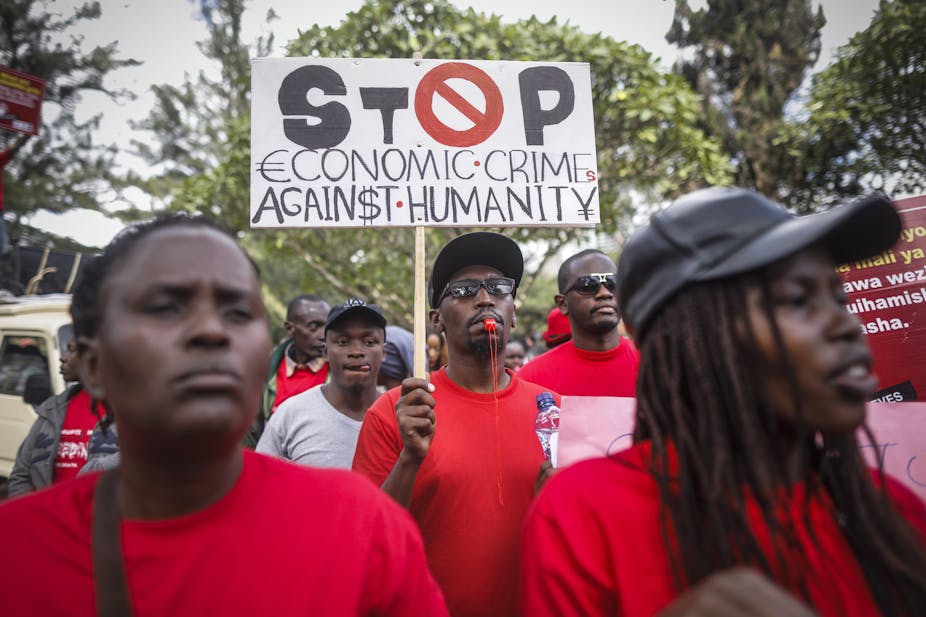
Kenya recorded the highest level of economic crime among 78 countries in the past year, with the theft of assets and money in businesses and government agencies on the rise, a report by consultancy PwC.
Kenya has a reputation for being one of the most corrupt countries in East Africa, and its judiciary is notorious for slow delivery of justice and rampant bribery. The government has repeatedly stated it is fighting these vices.
Countries with the highest rates of economic crime in the world;
1. South Africa 77%
2. Kenya 75%
3. France 71%
4. Russia 66%
5. Uganda 66%
6. Zambia 65%
7. Belgium 65%
8. China 63%
9. Mexico 58%
10. Tanzania 57%
(Source; PwC)
— Kenyan Wallstreet (@kenyanwalstreet) March 5, 2018
Kenya ranked second-highest after South Africa in 2009 when the last survey on economic crimes was conducted by the firm.

A total of 91 organizations in Kenya were surveyed. Many of them said cybercrime was also on the rise, mostly from Kenya and followed by Nigeria.
“Globally, Africa is seen as one of the main sources of cybercrime threats,” Whitehead said. (Reporting by James Macharia; Editing by Duncan Miriri).
Client-driven fraud has risen to rank among the leading threats to the modern corporation, according to a newly-released global economic crimes report.
PricewaterhouseCoopers (PwC) says in the report that up to 37 percent of Kenyan firms suffered client-led fraud in the past couple of years, placing customers among the biggest economic threats to the business.
South Africa has highest rate of economic crime (77% of companies and organisations hit) in the world, followed by Kenya (75%) and France (71%), finds accountancy firm PwC survey. Economic crimes include embezzlement and fraud. pic.twitter.com/eHg4H7fcqe
— James Hall (@hallaboutafrica) February 28, 2018
PwC says financial services have been the biggest victims of customer fraud with incidence rates of 65 percent for banks and 71 percent for insurers.
In the insurance sector, for instance, businesses have for years been falling prey to fraudulent customers who lodge illegitimate claims or inflated claims that are designed to appear legitimate.
A huge chunk of private car owners goes as far as writing off their older vehicles to get new ones or exaggerate repair costs to include wear and tear.
Chief Justice @dkmaraga has directed that all cases on corruption & economic crimes will be filed in the High Court Division at Nairobi. He has ousted the jurisdiction of the High Courts outside Nairobi. Let's all read the Article 165 of the Constitution of Kenya & engage pic.twitter.com/K5cVJyhIU2
— Apollo Mboya, HSC (@MboyaApollo) June 27, 2018
The Global Financial Integrity report estimates that from 2005 to 2014 Africa lost between USD$36 billion and USD$69 billion in illicit financial flows. This represents about 74% of all financing required (approximately USD$93 billion per year) to develop infrastructure to service Africa’s growth needs.
In Kenya’s case, the Eurobond swindle was more than just a missed opportunity to expand the country’s inadequate and dilapidated infrastructure. It also led to a sovereign rating downgrade on the basis of its increasing inability to service ballooning public debt.